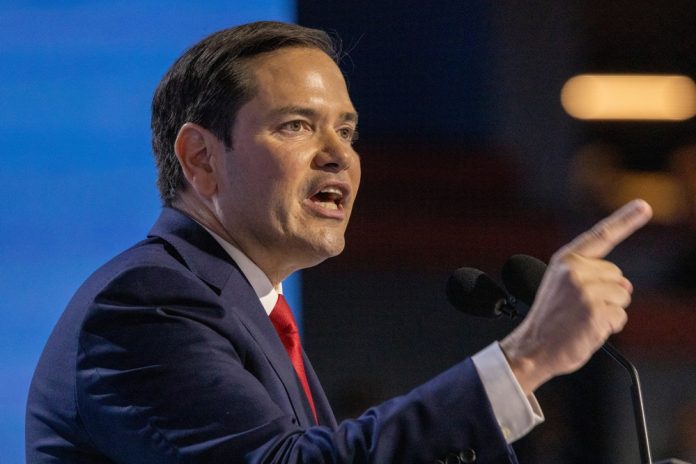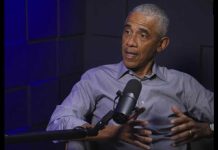
Castro and Maduro regimes unleash furious backlash against Trump’s travel ban, labeling the restrictions “racist” while desperately attempting to hide their own human rights abuses and immigration violations that triggered the policy.
Key Takeaways
- Cuba and Venezuela have condemned new U.S. travel restrictions imposed by President Trump, branding them as “racist” and “hateful” policies.
- The restrictions, effective June 9, 2025, target 19 countries with high visa overstay rates and governments refusing to accept removable nationals.
- Both regimes specifically attacked Secretary of State Marco Rubio as the architect behind the restrictions, accusing him of promoting anti-Cuban and anti-Venezuelan policies.
- While the regimes claim the ban hurts families, President Trump justified the measures based on persistent immigration violations and lack of cooperation from these governments.
- Venezuelan opposition groups requested that the restrictions be focused solely on regime supporters rather than all citizens fleeing persecution.
Socialist Regimes Cry Racism as Trump Closes Immigration Loopholes
The dictatorial regimes of Cuba and Venezuela have launched a coordinated propaganda campaign against President Trump’s new travel restrictions that took effect on June 9, 2025. Rather than addressing their decades of human rights violations that have caused millions to flee, both governments have chosen to attack the policy as “racist,” particularly singling out Secretary of State Marco Rubio. The restrictions are part of Trump’s broader immigration reform efforts targeting countries with significant visa overstay rates and governments refusing to accept deportees.
Cuba’s Foreign Minister Bruno Rodríguez Parrilla led the charge, claiming the restrictions would harm Cuban families rather than acknowledging the Castro regime’s responsibility for decades of separation through political persecution. The regime’s propaganda outlets have portrayed the policy as specifically targeting Cubans while ignoring the inclusion of 18 other nations in the restrictions. Meanwhile, Venezuela’s socialist regime under Maduro has characterized the ban as a “stigmatization and criminalization campaign” with “political and intimidating purposes.”
Regimes Attack Rubio While Ignoring Their Immigration Violations
In a transparent attempt to distract from their failings, both the Cuban and Venezuelan regimes have fixated their criticism on Secretary of State Marco Rubio, a Cuban-American who has consistently advocated for freedom in Latin America. The Venezuelan regime’s statement explicitly attacked Rubio, claiming, “This operation has been promoted by the current Secretary of State, Marco Rubio, an official known for his hatred of the Venezuelan people, who has made systematic aggression his foreign policy, with the support of the Venezuelan far right.”
“New U.S. entry ban on nationals of several countries has racist undertones with support from anti-Cuban politicians. It harms contact between Cuban families. It damages personal, professional, academic, and cultural exchanges between the two countries,” said Bruno Rodríguez Parrilla, Cuban Foreign Minister.
The Trump administration’s policy is rooted in verifiable immigration violations, not racism, as the regimes claim. Cuba and Venezuela have consistently refused to accept the return of their nationals who have entered the United States illegally or overstayed visas. Both countries have also been designated state sponsors of terrorism, providing further justification for the restrictions. The ban allows the administration to better vet travelers from high-risk nations while protecting American national security interests.
Venezuelan Opposition Highlights Regime Hypocrisy
In a revealing contrast to the regime’s rhetoric, Venezuela’s legitimate opposition has taken a more nuanced approach to the travel ban. The Democratic Unitary Platform (PUD) coalition requested that Venezuela be removed from the restricted list, highlighting the plight of citizens fleeing the Maduro regime’s persecution. Their statement emphasized: “The Venezuelan people are fighting for democracy, human rights, and dignity. We therefore request that the US government review this decision and remove Venezuela from the list. We deserve the support of the free world, not additional punishment.”
“This operation has been promoted by the current Secretary of State, Marco Rubio, an official known for his hatred of the Venezuelan people, who has made systematic aggression his foreign policy, with the support of the Venezuelan far right,” stated Venezuela’s socialist regime.
The Vente Venezuela party, a prominent opposition group, suggested a more targeted approach, requesting that the restrictions focus exclusively on regime supporters and individuals committing illegal acts rather than all Venezuelan citizens. This rational approach stands in stark contrast to the regime’s inflammatory rhetoric and exposes the hypocrisy of Maduro’s government, which has overseen one of the largest refugee crises in the Western Hemisphere while complaining about U.S. immigration policy.
Trump’s Firm Stance on Immigration Enforcement
President Trump has made it clear that more countries could be added to the restricted list if they fail to meet U.S. security and immigration cooperation standards. This firm stance represents a return to the immigration enforcement priorities of his first administration, prioritizing American security over the complaints of authoritarian regimes. The restrictions were carefully crafted to address specific security concerns while allowing the administration flexibility to adjust the policy as conditions change.
“The Venezuelan people are fighting for democracy, human rights, and dignity. We therefore request that the US government review this decision and remove Venezuela from the list. We deserve the support of the free world, not additional punishment,” stated the Democratic Unitary Platform (PUD).
While the dictatorial regimes of Cuba and Venezuela continue their desperate attempts to deflect criticism of their own human rights abuses, the Trump administration remains focused on securing America’s borders and ensuring that countries cooperate with U.S. immigration laws. The travel restrictions represent a common-sense approach to immigration enforcement that puts American interests first while holding rogue regimes accountable for their actions and inactions regarding their citizens.













